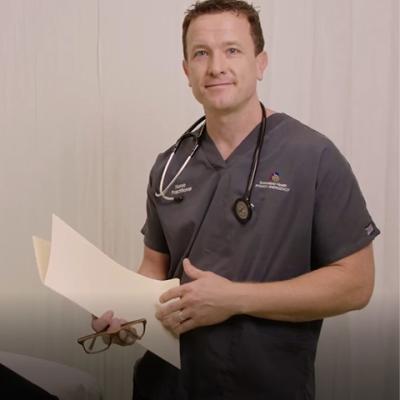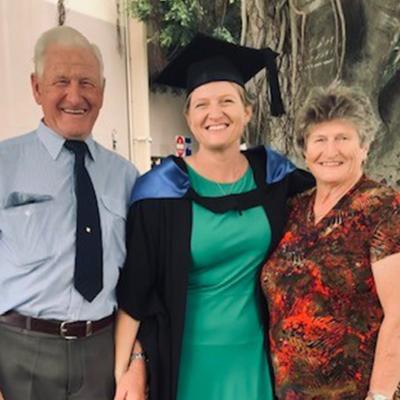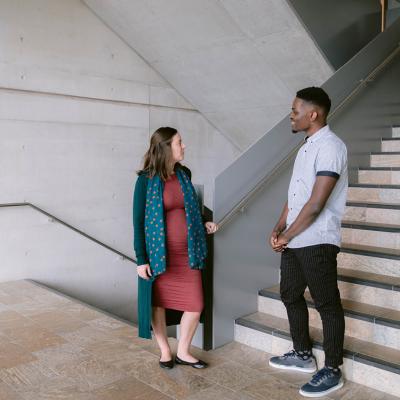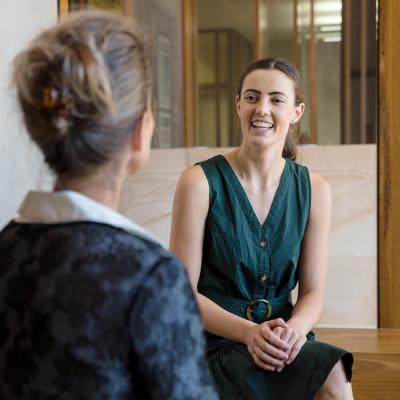Meet Aaron Grogan, a nurse practitioner, PhD candidate and program leader for UQ’s postgraduate nurse practitioner program. He’s passionate about improving the way we deliver care within our healthcare system.
For an already registered nurse, becoming a nurse practitioner was Aaron’s way to make a real and lasting impact on a much greater scale. From running a health service in Papua New Guinea to researching ways to provide improved healthcare access for patients, Aaron is committed to creating change for the better.
What’s a nurse practitioner?
Let’s address the obvious question you might be asking first: what’s the difference between a registered nurse and a nurse practitioner?
“Nurse practitioners bridge the gap between nursing and medicine to improve access opportunity for consumers,” says Aaron.
“They are specialty-trained independent practitioners.”
What does a nurse practitioner do?
- Utilise advanced nursing knowledge and expanded skills.
- Prescribe, diagnose and manage large cohorts of patients.
- Meet service demands while aiming to address issues in existing healthcare services.
- Provide an extra level of care in rural and remote areas.
“The clinical and academic education undertaken by nurse practitioners prepares them to expand the boundaries of nursing practice and to incorporate extensions to their clinical practice."
Opening doors to a dynamic and meaningful career
According to Aaron, while the role of a nurse practitioner isn't for everyone, it is for those who want to make a difference.
“Those who recognise that there is an opportunity to augment the delivery of care and improve the outcomes for patients can make a real and meaningful difference in this profession,” he says.
As a nurse practitioner with an emergency background, Aaron has worked in some unique roles.
“I ran a health service in Papua New Guinea (PNG), facilitating aeromedical retrievals and catering for more than 20,000 patient presentations a year,” he says.
“Impacting the lives of those within PNG and delivering care in such challenging circumstances enabled me to develop a very calm and relaxed approach within my work environment back in Australia.”
After 13 years working as a nurse practitioner, Aaron says the best part of the role was having the ability to make a real and lasting impact on his patients.
“The years of experience and training enable you to make decisions on patient management and care which can be life changing. This is, however, also the most stressful aspect of the nurse practitioner role.”
Leading research and tomorrow’s health professionals
As the program leader for UQ’s postgraduate nurse practitioner program, the Master of Nurse Practitioner, Aaron has the exciting opportunity to shape the future of the role and how it can improve healthcare in Australia.
“I was drawn to an academic role as I wanted to have a more direct impact on future nurse practitioners,” he says.
“Whilst the role contains the usual teaching and coordination responsibilities, I find the most fulfilling aspect is engaging with the students – working with them to understand the unique opportunities they each bring and watching them flourish in the clinical setting is just inspiring to see.”
In addition to his academic role, Aaron is currently completing his PhD.
“My research is looking at ways of implementing a consistent approach to securing advanced practitioners within health workforce planning activities," he says.
“This research has the potential to redefine work within the healthcare system and provide opportunities for clinician career progression and better access for patients.”
How can I become a nurse practitioner?
To become a nurse practitioner in Australia, you’ll need to undertake postgraduate studies at university. UQ offers a Master of Nurse Practitioner, which will prepare you for this role.
How long does it take to become a nurse practitioner?
UQ’s Master of Nurse Practitioner takes 2 years of part-time study to complete.
“In UQ’s Master of Nurse Practitioner, a registered nurse is guided by a team of senior medical, nursing and allied health colleagues to acquire the practical skills and capability to practise as a nurse practitioner,” says Aaron.
“In this program, you’ll develop a deep appreciation of the healthcare environment and the ability to create change through the leadership and professionalism of the nurse practitioner role.”
Meet some other UQ academics or learn more about the Master of Nurse Practitioner or Master of Nursing (Graduate Entry).






